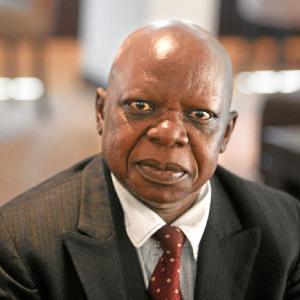By Wilfred Mhanda (Dzinashe Machingura)
There is a raging public debate on security sector reform that has been triggered by controversial remarks by senior military officers. Brigadier-General Douglas Nyikayaramba, commander of 3 Infantry Brigade based in Mutare recently declared in an interview with the Zimbabwe Independent, that Mugabe and Zanu PF should rule forever, and poured scorn on the Prime Minister Morgan Tsvangirai.
He declared that Zanu PF would win the next election and that he was prepared to fight and die for Mugabe. In further utterances, he designated the PM to be a national security threat and not a political one, in response to a challenge by Tsvangirai for the pro-Zanu PF generals to take off their uniforms and enter the political fray.

The remarks by Nyikayaramba are patently political and partisan and disrespectful of the PM’s office and not expected of a serving military officer of such a senior rank. The remarks follow on similar utterances by the so-called securocrats who include among their rank Police Commissioner-General Augustine Chihuri, that they would never salute Tsvangirai if he won an election to become president. Indeed, they spearheaded the bloody campaign for Mugabe’s re-election in June 2008.
The country’s service chiefs, in a joint statement at a press conference ahead of the March 2002 presidential election, declared that the office of a head of state was a straight jacket that could not be occupied by anyone without liberation war credentials. The reaction to the remarks by Nyikayaramba have to be seen in the context of the trend by senior military officers to identify themselves with Mugabe and Zanu PF in violation of the standards of a professional defence force that should place the national interest above partisan sectional considerations.
The remarks by Nyikayaramba have thus rekindled the debate on the appropriateness of political and partisan utterances by serving senior military officers. It is clear that their remarks are in contravention of the provisions of the Constitution of Zimbabwe, the Defence Act, the Police Act and the Prisons Act for the establishment of professional and non-partisan security forces.
The disparaging remarks by the commanders of the security forces directed at Mugabe’s opponents should be contrasted with the conduct of the Rhodesian security forces in 1980 following Mugabe’s and Zanu PF’s victory in the 1980 Independence elections. The overwhelming majority of the former Rhodesian security forces and their commanders respected the outcome of the election and accepted the new political order.
Admittedly, there were some recalcitrant elements that resisted the new order as evidenced by the destruction of some aircraft at Thornhill Airbase in Gweru in the early 1980s. That notwithstanding, the majority of the former Rhodesian security forces remained loyal to the new government of Prime Minister Robert Mugabe with some still in service to date.
That is what is expected of professional security forces; respecting the outcome of an election as an expression of the will of the majority of the people.
During the liberation struggle, the liberation forces were considered to be the people’s forces that fought for the people’s liberation and their protection from the Rhodesian security forces. The present record of the country’s security forces is now the exact opposite of this expectation with the security forces visiting abuse and atrocities on defenceless civilians; the very people they are supposed to serve and protect.
They have orchestrated Zanu PF’s violent election campaigns since 2000 that saw thousands of people killed, tortured and women raped and their homes and property destroyed for no crime than their constitutional support for the opposition.
Such forces can never be considered to be people’s forces on account of their acts of terror against the people. Zimbabweans have been left wondering what has gone wrong with the country’s security forces that have reduced themselves to become Zanu PF militia. This was not their expectation when they supported the fight for freedom, democracy, social justice, respect for human dignity and peace.
During the war, Zanla forces operated according to the dictum: “The party commands the gun and the gun must never be allowed to command the party”. After independence the maxim translated to: “The nation commands the gun and the gun must never be allowed to command the nation”.
(To be continued next week………………)
Wilfred Mhanda is a veteran of the liberation war. His nom de guerre was Dzinashe Machingura. This article was initially published in the Zimbabwe Standard





